Steeper UK productivity cut of more than £20bn makes tax rises more likely
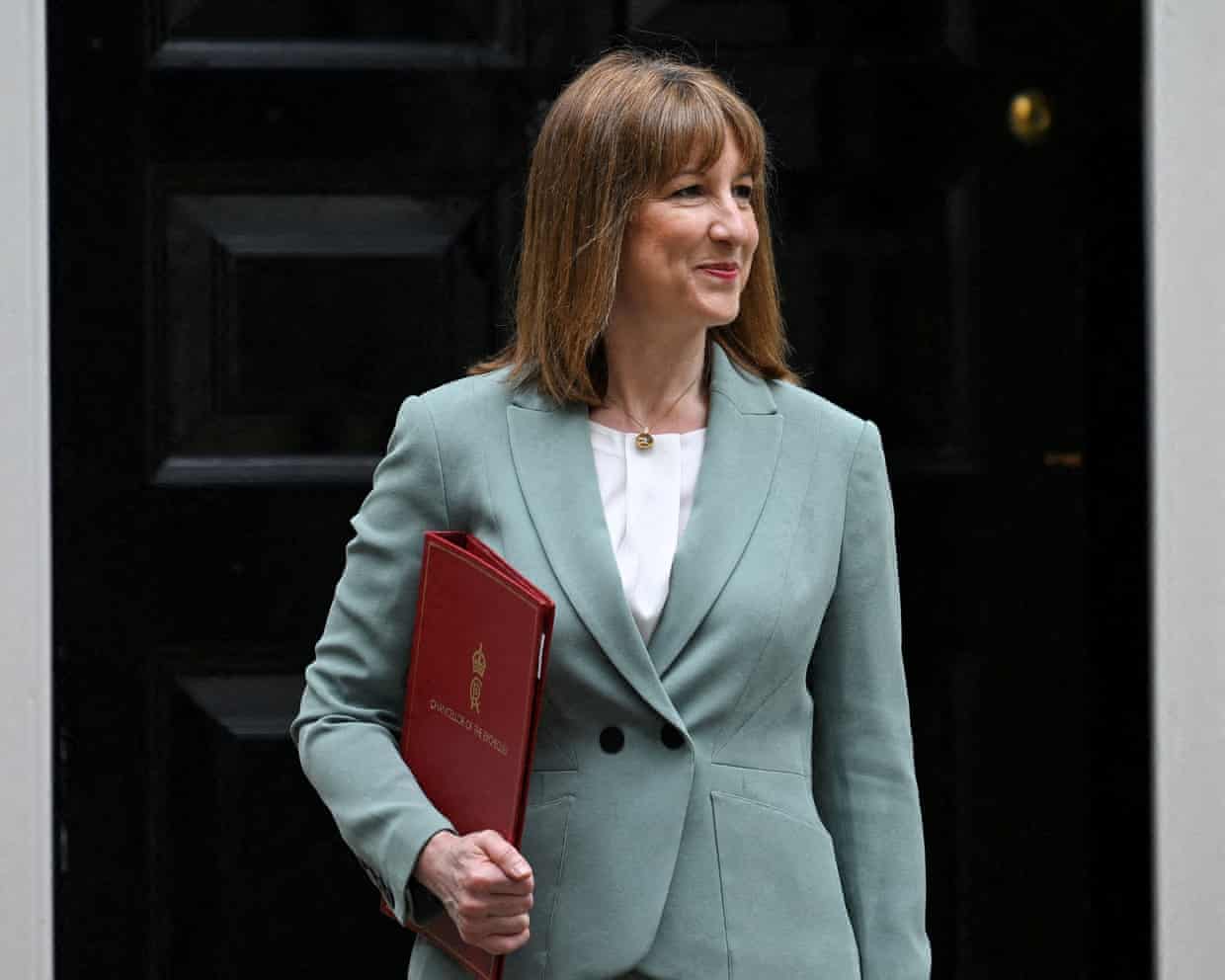
Rachel Reeves will have to account for a bigger-than-expected £20bn hit to the UK public finances in next month’s budget, increasing the likelihood that the chancellor will breach a key Labour’s manifesto pledge not to raise income tax.The Treasury’s forecaster is preparing a steeper than anticipated cut to UK productivity for the next five years, the Guardian understands.The Office for Budget Responsibility (OBR) is planning to cut its trend productivity growth prediction by 0.3 percentage points after a downgrade of the UK’s economic momentum since the 2008 financial crash.Reeves is understood to be furious that the OBR has chosen her second budget to downgrade the figure, which indicates how effectively workers can do their jobs and underpins forecasts of economic growth.
Labour said in its election manifesto that it would not increase income tax, VAT or national insurance, but Reeves could say that the revisions by the OBR upend her calculations, forcing the government to renege on earlier commitments.Reeves is now in Saudi Arabia, where she told the Fortune Global Forum in Riyadh: “Our independent forecaster is likely to downgrade the forecast for productivity in the UK based not on anything this government has done, but on our past productivity numbers, which, to be honest, since the financial crisis and Brexit have been very poor, and that just shows how essential growth is.“So I’m not going to do anything in the budget that reduces our opportunities to grow the economy.That’s very important.”The estimated impact is based on calculations by the Institute for Fiscal Studies (IFS) thinktank, first reported in the Financial Times, which has said that each 0.
1-percentage-point downgrade to productivity would increase public sector net borrowing by £7bn in 2029-30.That suggests that a 0.3-point reduction could result in a £21bn hit to the public finances.Some analysts had been forecasting a 0.1 to 0.
2-point downgrade in the OBR’s productivity outlook, resulting in smaller hit to the public finances of between £7bn and £14bn, based on IFS calculations.This would result in a total fiscal hole of £20bn to £30bn, according to some estimates.A larger downgrade to productivity by the OBR would increase that shortfall.However, the final number could be offset by other factors including lower borrowing costs and faster-than-expected growth.Allan Monks, an economist at JP Morgan, said the productivity downgrade could reach almost £27bn, but a fall in debt financing costs or more people coming into the jobs market may help limit the damage.
“For now, we are still assuming a £20bn-£30bn range, but with the risk that this could be exceeded to some degree,” Monks said.Sign up to Business TodayGet set for the working day – we'll point you to all the business news and analysis you need every morningafter newsletter promotionThe Guardian reported last week that the chancellor was already in active discussions over an income tax rise to help reduce a multibillion-pound shortfall in the public finances.Reeves is understood to be nervous about the political consequences of such a major abandonment of the party’s previous pledges.However, comments in recent weeks appear to be opening the door to a possible U-turn since news of the likely productivity hit emerged in the September.Last week, the chancellor said a heavier-than-anticipated blow from Brexit and austerity meant she was braced for a sharp downgrade from the OBR.
The watchdog is due to present its outlook to the Treasury on Friday.Reeves is facing one of the most difficult budgets any chancellor has contemplated in recent years.As speculation over income tax rises swirl, Reeves is also planning to raise an additional £2bn by increasing national insurance for doctors, lawyers and accountants who are employed through partnerships.A Treasury spokesperson said: “We won’t comment on speculation ahead of the OBR’s forecast, which will be published on 26 November.”
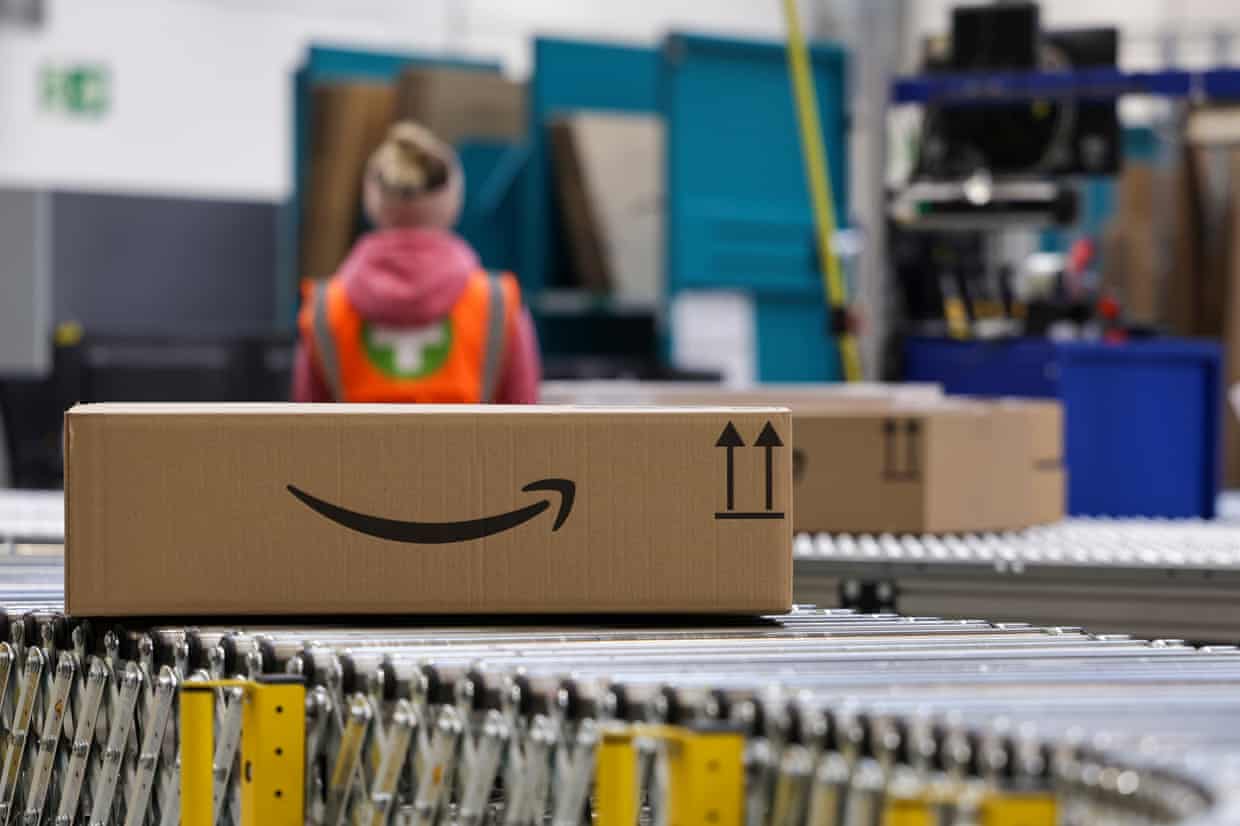
Amazon confirms plans to lay off 14,000 corporate workers as part of wave of cuts
Amazon has confirmed plans to lay off 14,000 corporate workers, as part of a wave of cuts expected to hit tens of thousands of jobs.The Seattle-based retail giant, which is vying to reverse a pandemic hiring spree, is attempting to cut costs and slim down its huge operation. This summer, its CEO warned white-collar employees their jobs could be taken by artificial intelligence.Beth Galetti, a senior vice-president at Amazon, wrote in a memo to employees on Tuesday: “The reductions we’re sharing today are a continuation of … work to get even stronger by further reducing bureaucracy, removing layers, and shifting resources to ensure we’re investing in our biggest bets and what matters most to our customers’ current and future needs.”On Monday, Reuters and the Wall Street Journal reported that Amazon was poised to cut as many as 30,000 corporate jobs, citing unnamed sources familiar with the matter, as it tries to undo the vast recruitment drive it embarked on at the height of the coronavirus pandemic, which unleashed an extraordinary – but fleeting – surge in demand for online shopping
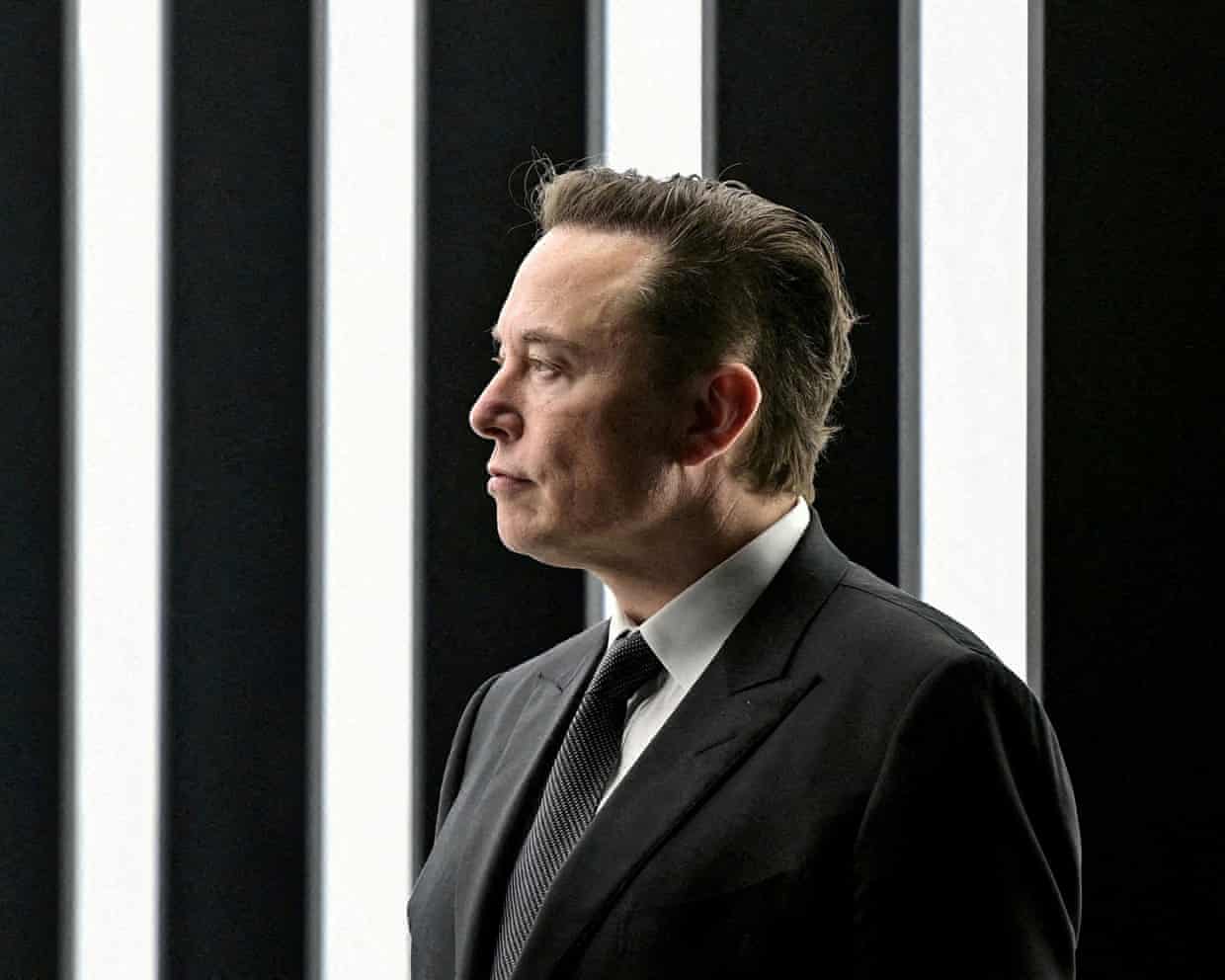
Elon Musk launches encyclopedia ‘fact-checked’ by AI and aligning with rightwing views
Elon Musk has launched an online encyclopedia named Grokipedia that he said relied on artificial intelligence and would align more with his rightwing views than Wikipedia, though many of its articles say they are based on Wikipedia itself.Calling an AI encyclopedia “super important for civilization”, Musk had been planning the Wikipedia rival for at least a month. Grokipedia does not have human authors, unlike Wikipedia, which is written and edited by volunteers in a transparent process. Grokipedia said it is “fact-checked” by Grok, Musk’s AI chatbot.Musk said the idea was suggested by the Trump administration’s AI and cryptocurrency czar, David Sacks

‘A good moment in time for us’: Firefox head on AI browsers and what’s next for the web
Do you need an assistant for your online activities?Multiple major players in artificial intelligence are moving on from chatbots like ChatGPT and are now focusing their efforts on new browsers with deep AI integrations. Those could take the form of an agent that shops for you or an omnipresent chatbot that follows you around and summarizes what you’re seeing, looks up related stuff, or answers related questions.Last week alone, OpenAI released the ChatGPT Atlas browser, and Microsoft showed off Edge’s new Copilot Mode, both of which heavily feature chatbots. At the start of October, Perplexity made its Comet browser free. In mid-September, Google rolled out Chrome With Gemini, integrating its AI assistant with the most popular browser in the world

More than a million people every week show suicidal intent when chatting with ChatGPT, OpenAI estimates
More than a million ChatGPT users each week send messages that include “explicit indicators of potential suicidal planning or intent”, according to a blogpost published by OpenAI on Monday. The finding, part of an update on how the chatbot handles sensitive conversations, is one of the most direct statements from the artificial intelligence giant on the scale of how AI can exacerbate mental health issues.In addition to its estimates on suicidal ideations and related interactions, OpenAI also said that about 0.07% of users active in a given week – about 560,000 of its touted 800m weekly users – show “possible signs of mental health emergencies related to psychosis or mania”. The post cautioned that these conversations were difficult to detect or measure, and that this was an initial analysis
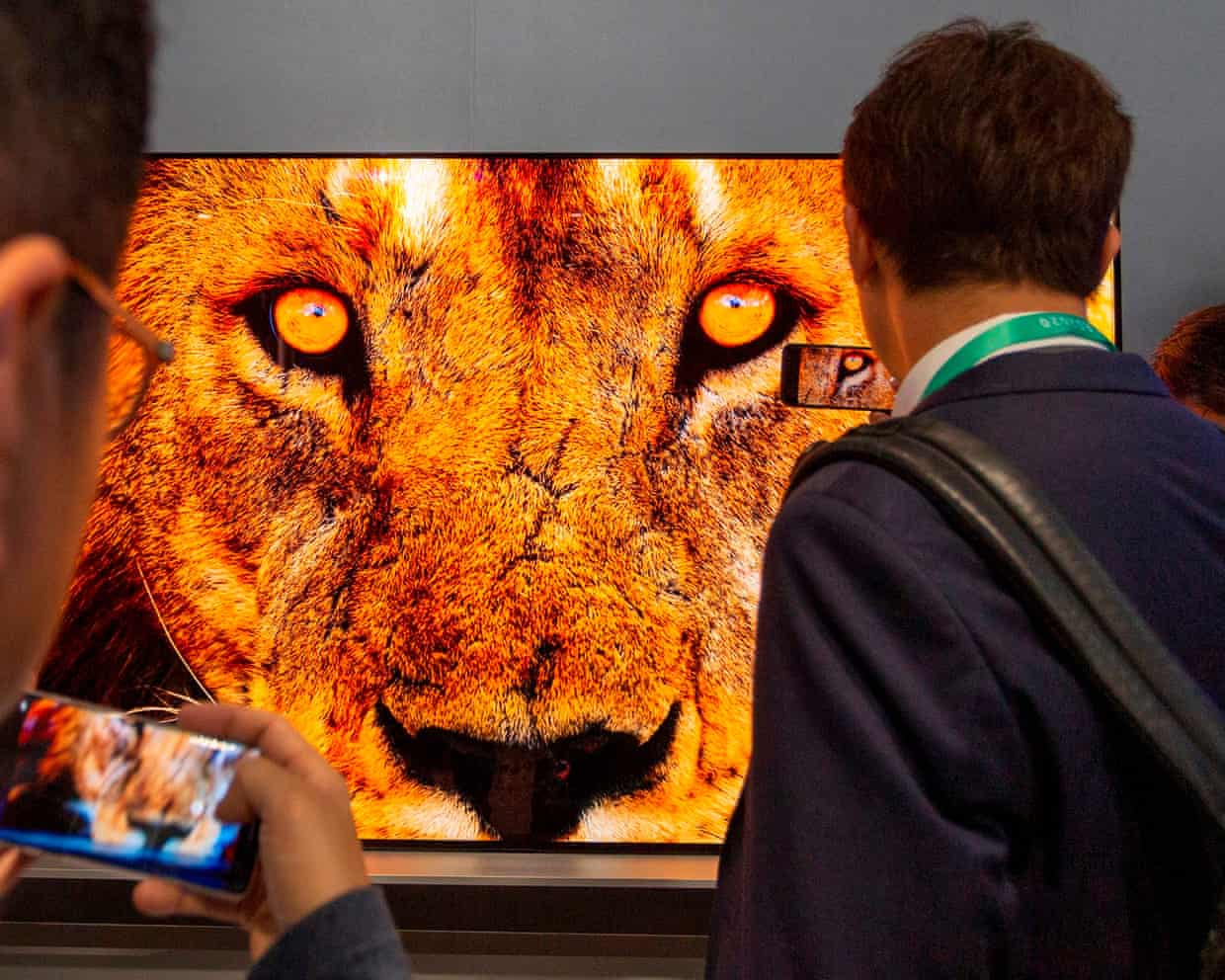
Ultra-HD televisions not noticeably better for typical viewer, scientists say
Many modern living rooms are now dominated by a huge television, but researchers say there might be little point in plumping for an ultra-high-definition model.Scientists at the University of Cambridge and Meta, the company that owns Facebook, have found that for an average-sized living room a 4K or 8K screen offers no noticeable benefit over a similarly sized 2K screen of the sort often used in computer monitors and laptops. In other words, there is no tangible difference when it comes to how sharp an image appears to our eyes.“At a certain viewing distance, it doesn’t matter how many pixels you add. It’s just, I suppose, wasteful because your eye can’t really detect it,” said Dr Maliha Ashraf, the first author of the study from the University of Cambridge
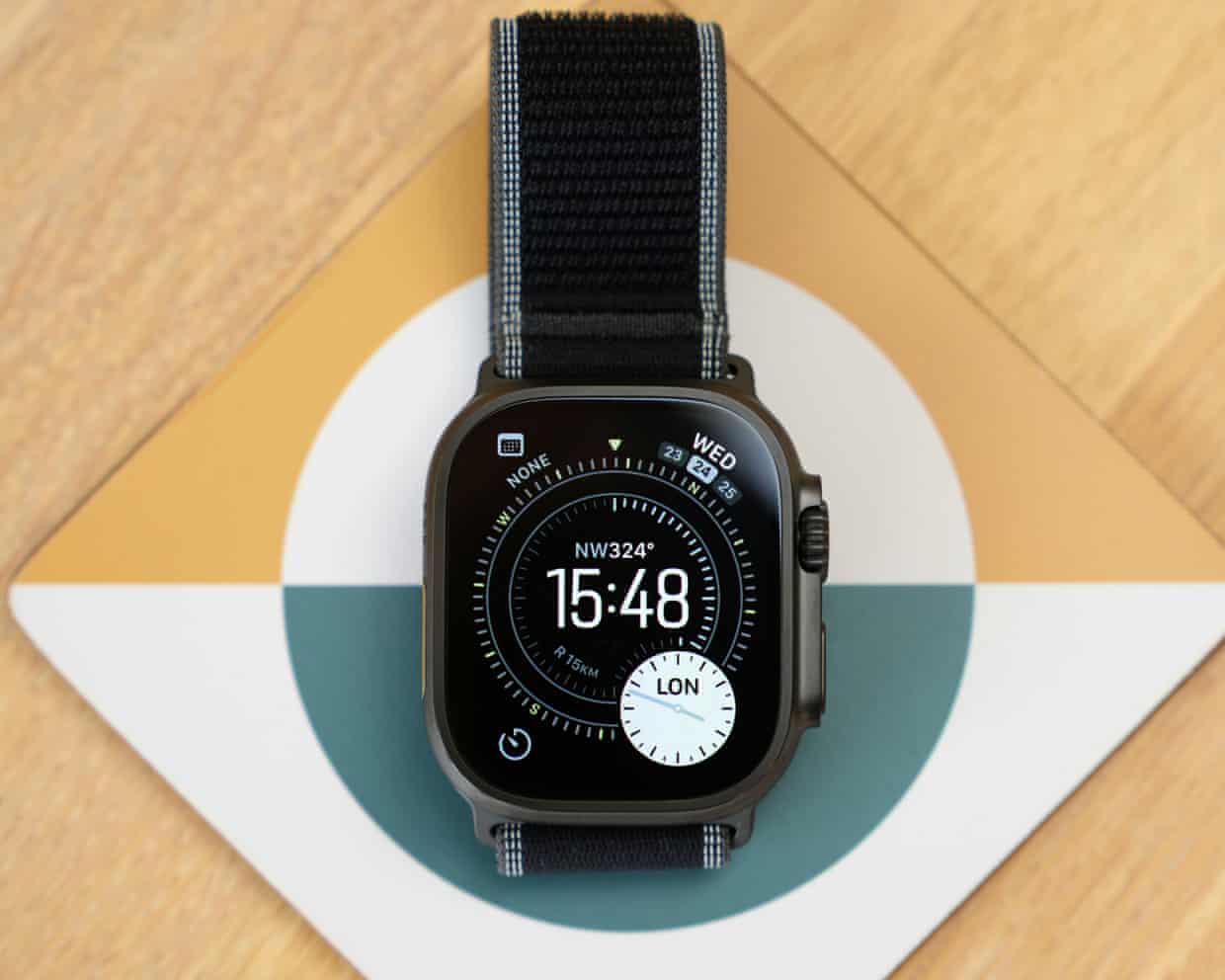
Apple Watch Ultra 3 review: the biggest and best smartwatch for an iPhone
The biggest, baddest and boldest Apple Watch is back for its third generation, adding a bigger screen, longer battery life and satellite messaging for when lost in the wilderness.The Guardian’s journalism is independent. We will earn a commission if you buy something through an affiliate link. Learn more.The Ultra 3 is Apple’s answer to adventure watches such as Garmin’s Fenix 8 Pro while being a full smartwatch for the iPhone with all the trimmings

Double, heavy, pure cream? Helen Goh’s guide to baking across borders – plus a finger bun recipe

Rukmini Iyer’s quick and easy recipe for beetroot, apple and feta fritters | Quick and easy

From harissa baked hake to chicken schnitzel: Ravinder Bhogal’s recipes for cooking with nuts

We tried Tyra Banks’ ‘revolutionary’ hot ice-cream, and colour us confused

How to make sweet-and-sour pork – recipe | Felicity Cloake's Masterclass
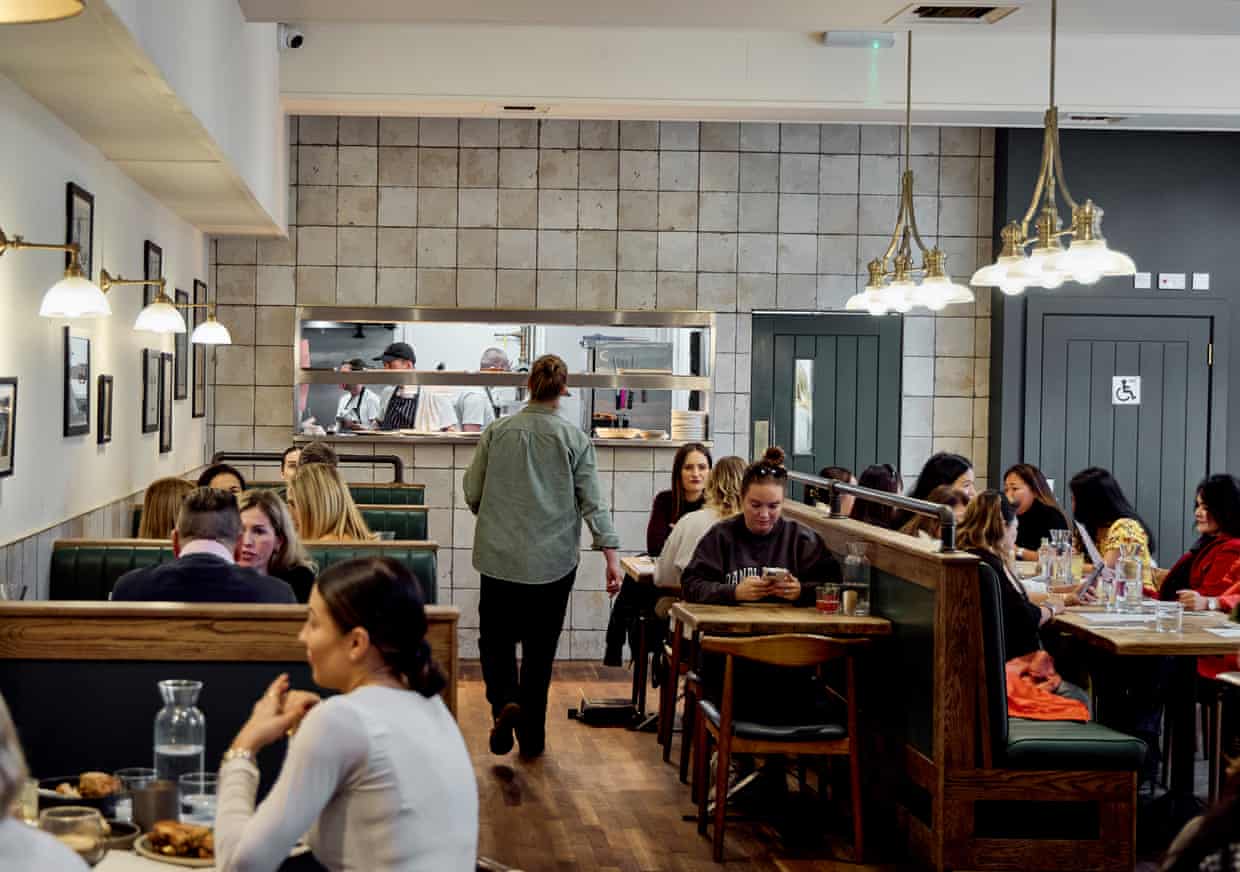
Fete, Chelmsford, Essex: ‘It absolutely dares to be different’ – restaurant review | Grace Dent on restaurants